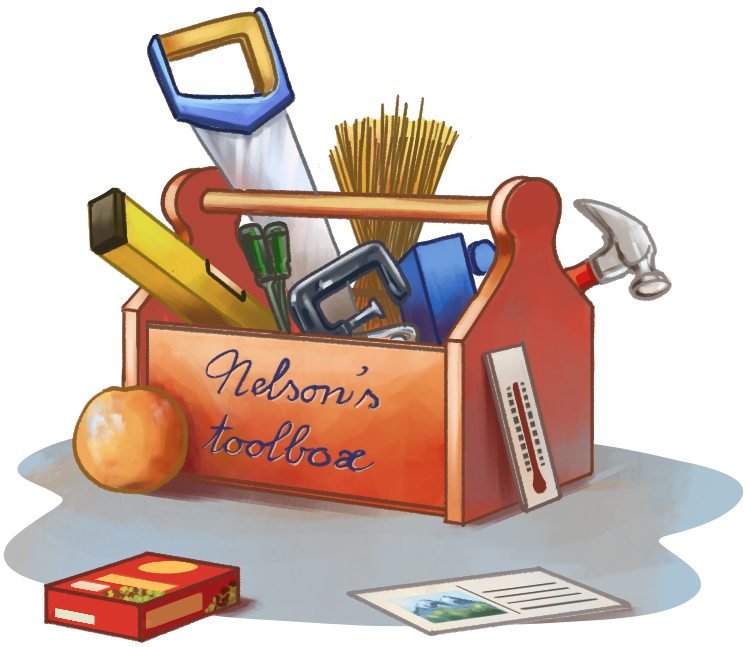





Chapter 11. Practicing Coping Tools, Part 2 Copy

When Nelson knocks and enters the room, there is a conspicuous difference in his demeanor. His posture is straighter, and his expression is calmer, more assured. He virtually bounds into your office and takes his seat with a smile at the same moment you motion him to his seat.
“Nelson!” you exclaim warmly. “It’s so nice to see you again. How have you been?”
“I’m doing very well,” he replies. “How have you been?”
“Very well, too. Thank you for asking. Today we’ll review how practicing went and fill in your toolbox! The toolbox is an imagined, written, or physical space where you will be keeping your coping tools. Here, this worksheet is an example—and you can use it, or we might create our own, and decorate it however you want, and then we’ll fill it in with the tools you choose. So how did it go with the coping tools? Did you practice any?”
“Yeah,” he says, nodding his head, a little timidly. “Some of them worked, some of them didn’t.”
“Which did you practice?”
“Breathing,” he says while lifting his eyebrows. “It’s simple,” he continues, “and I like it. I think it worked for me. I also tried doing the Mountain Pose, but every time I did it, I kind of started laughing!” Nelson laughs, as if on cue, which in turn makes you chuckle. “I found it a little silly, so it didn’t really work. And I listened to music and talked to Maya on the phone a lot. I think those really helped me relax.”
“OK, good. Any other tools?”
“Um, I played text – visuals – animated gifs games, I watched TV and smoked some marijuana,” Nelson says with a shrug.
“So I remember that before when you played text – visuals – animated gifs games too late, you didn’t feel as rested or do as well at school. How long did you play text – visuals – animated gifs games this week?” you ask.
“Only an hour in the evening. I still got up early and went to school.”
You slowly nod and look down at your notes. “Are there any downsides that came from smoking?”
“Well. My mom is suspicious and we got into a big argument. That made me pretty anxious and angry.”
“Would it be a good idea to have something else to try instead next time, that doesn’t make Mom suspicious and lead to anxiety? Like calling Maya? Or using another coping tool from your box?”
Nelson takes a moment to ponder the idea. He glances in your direction before shrugging timidly. “I guess I could try.”
“But it sounds like you practiced a lot of our adaptive coping tools! You really did a great job, Nelson! Would you mind demonstrating how you did deep breathing?”
“Yeah!” Nelson positions his feet, rolls his shoulders back, and closes his eyes. He breathes in deeply through his nose, expanding his belly, and exhales slowly—nodding his head the tiniest bit to count to four.
He does this once more and you very quietly interrupt, “Nelson, that’s great, you’ve been practicing perfectly. And when did you practice?”
“Well…Sometimes I practiced when I was at home feeling good because I wanted to master them. And I practiced at school, too.”
“Great! You didn’t wait until you felt bad—this is the most effective way to practice! Now we’re going to review any of the tools you think you need to practice more, and then we will decide which ones you want to keep in your toolbox. Are there any tools that might need some additional practice?”
“Maybe imagining the special place?”
“OK, let’s do it together.”
